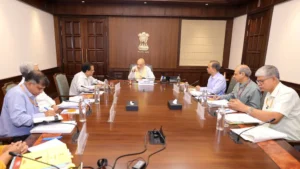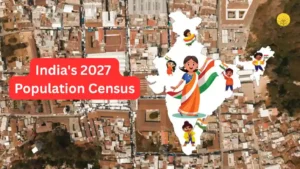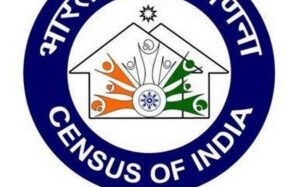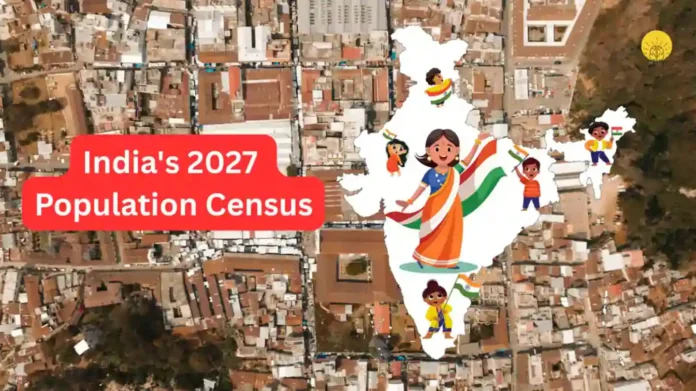
Qalam Times News Network
New Delhi, June 16, 2025 — The Government of India has formally announced that the next national Census will be undertaken in the year 2027. This will mark the country’s 16th Census since its inception and the eighth after independence. A gazette notification to this effect was issued by the Ministry of Home Affairs on Monday, confirming that extensive population data will be collected across India in a two-phase operation.

The announcement follows a high-level review held on Sunday, during which Union Home Minister Amit Shah assessed the preparedness for the mammoth exercise in a meeting with Union Home Secretary Govind Mohan and senior officials at the North Block.
In accordance with Section 3 of the Census Act, 1948, the notification—issued by Mritunjay Kumar Narayan, Registrar General and Census Commissioner—replaces the earlier notification dated March 26, 2019. It specifies that the official reference date for the 2027 Census will be March 1, 2027, across most of the country. However, for the snow-bound and remote areas of Ladakh, Jammu & Kashmir, Himachal Pradesh, and Uttarakhand, the reference point has been advanced to October 1, 2026, to accommodate logistical challenges during winter.
Significantly, this edition of the Census will also include a nationwide caste-based enumeration, a first since 1931. The exercise is slated to collect detailed demographic, socio-economic, and cultural information from households across the country.

According to the official statement, the Census will be executed in two key stages. The first phase, known as the Houselisting Operations (HLO), will document housing structures, living conditions, household assets, and basic amenities. The second phase, the Population Enumeration (PE), will gather personal information about every individual in the household, including age, education, employment, language, and now, caste affiliation.
The scale of the operation is immense, with an estimated 34 lakh enumerators and supervisors set to be mobilised, supported by an additional 1.3 lakh functionaries. To improve efficiency and accuracy, the 2027 Census will be conducted digitally for the first time, using specially designed mobile applications. Citizens will also be offered the option of self-enumeration, empowering them to input their data securely via digital platforms.
To address concerns around data protection, the government has assured that robust cybersecurity protocols will be enforced at every stage—from data collection to storage—ensuring the integrity and confidentiality of individual information.
The upcoming Census is expected to provide crucial insights for national planning, policy formulation, and targeted welfare delivery, especially in the context of socio-economic diversity and caste dynamics in India.







